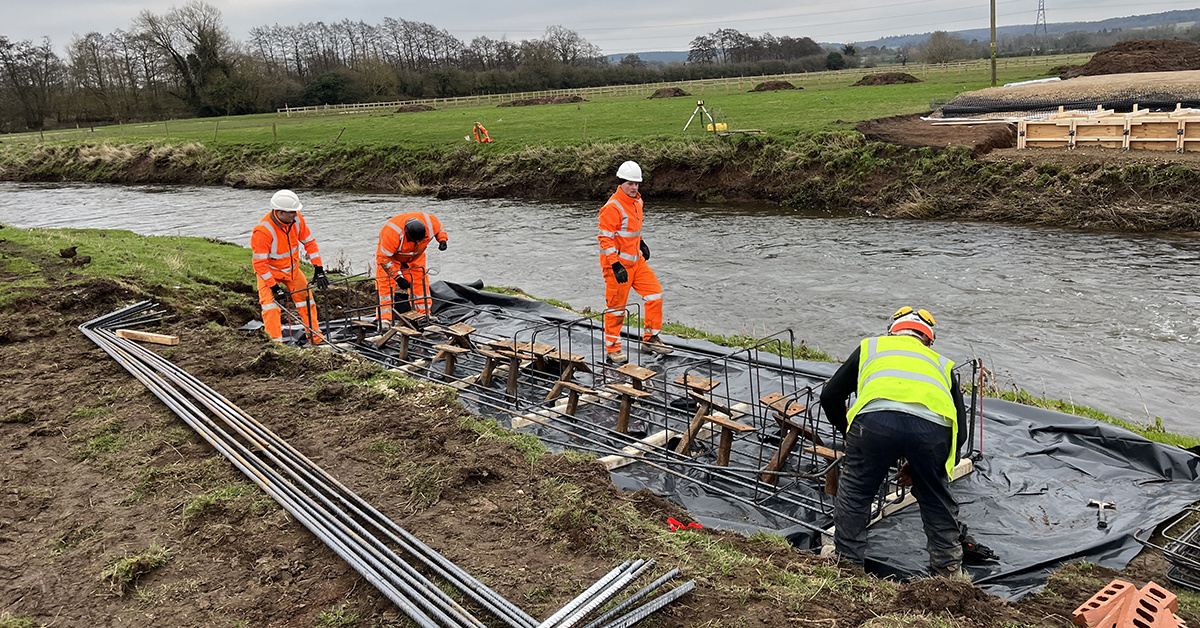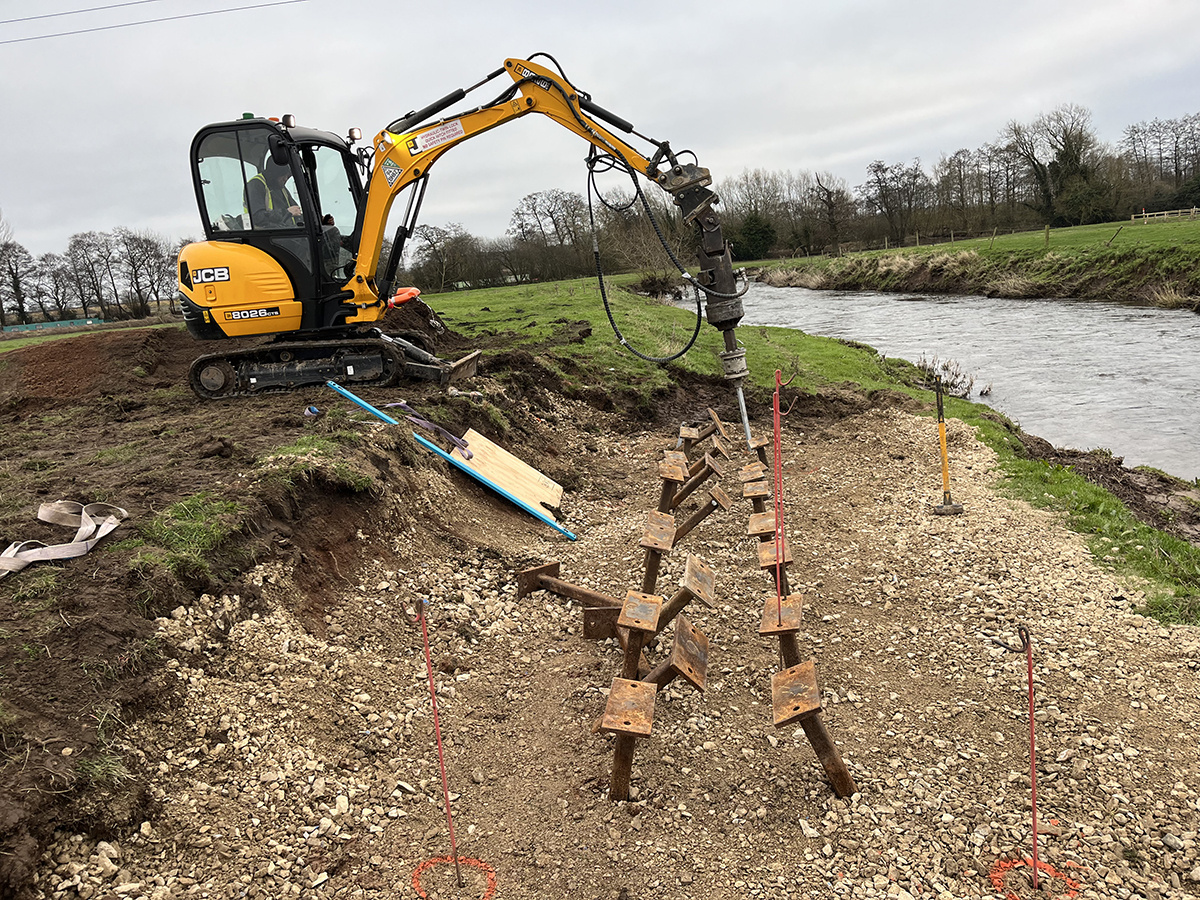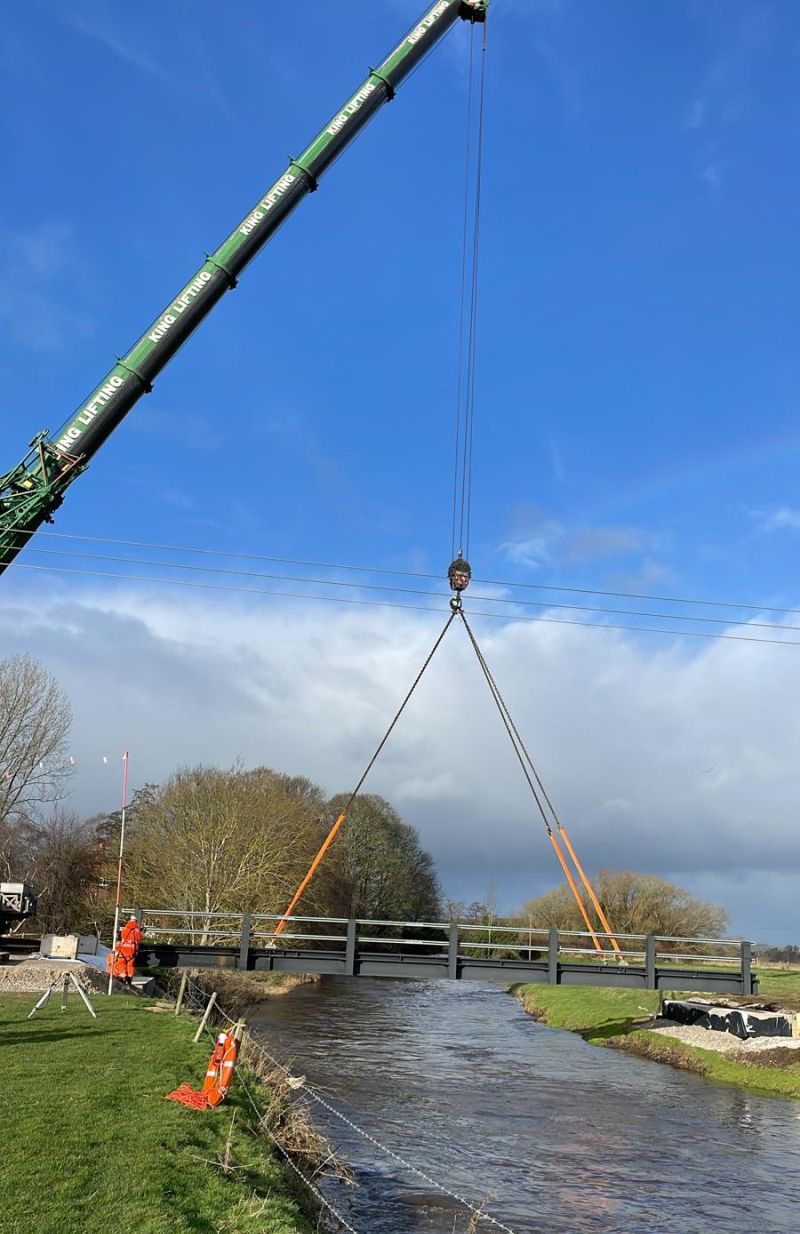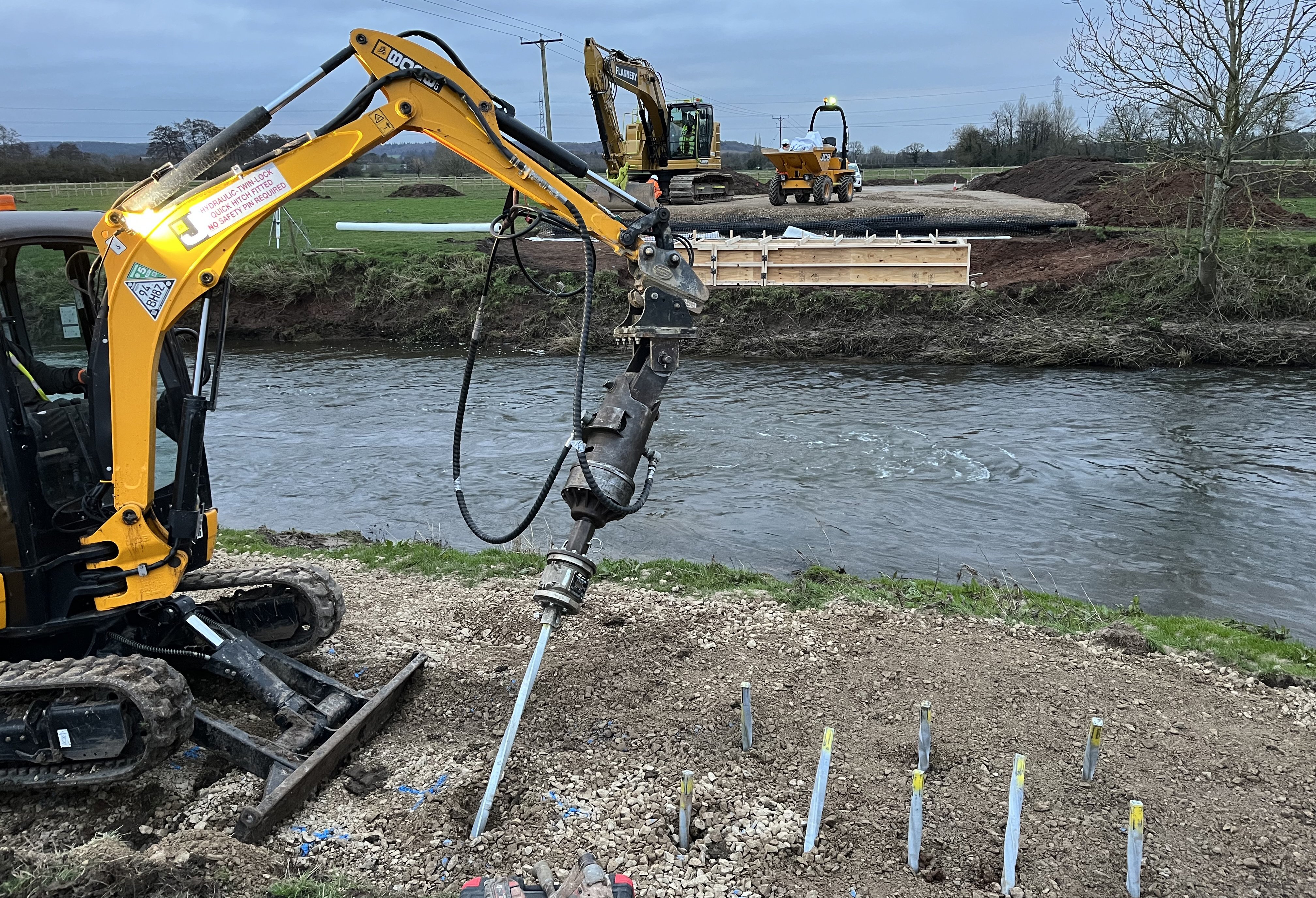A £7.5m water treatment infrastructure project was being constructed in Staffordshire, UK. Access to the site was limited due to the presence of a river and weight restrictions, therefore a temporary bridge 15m long and 5m wide was required. A 3-ton weight restriction on one side of the river necessitated the construction of a temporary bridge to allow construction traffic to the site.
The bridge was to allow access for construction traffic during the construction process with the provision that the area had to be returned to its original state; therefore, a removeable temporary foundation solution was required. This was in an environmentally sensitive area of farmland. AB Chance helical screw pile foundations were considered the ideal solution because the piles could be easily removed once the construction project was completed.
A ground investigation report had been commissioned and soil was reported as clays and gravel. Although the bridge was a temporary structure, it needed to support heavy construction equipment, including a 100-ton crane and also horizontal shear loads due to vehicle braking. Helical piles displace soil, so their installation requires no excavation nor spoils to be removed making them an excellent solution for this environmentally sensitive area which was to be restored to its original state after project completion.
“[The new water treatment project] creates a better, more vibrant wildlife habitat in the brook and means that there is less likely to be flooding during heavy rain,” said Kay Gill, Community Communications Officer at Severn Trent.1

Engineers used HeliCAP® v3.0 helical capacity design software to determine depth and capacity of the piles. Developed by Chance engineers, HeliCAP performs calculations on user-input site soil parameters to determine number of piles to be installed, plus depth and spacing. To confirm these calculations, torque is monitored during installation in “real time” using a Chance Digital Torque Indicator. Bluetooth® technology sends live torque readings to connected devices during the installation, either in foot-pounds or Newton-meters, as required. The installation torque for this project was 9510 Nm to achieve the required capacity of 300 kN.

A 2.9 ton excavator installed 48 Chance SS150 square shaft triple helix 8-10-12 screw piles with 2m extensions, to a depth of 8-12 metres. The foundation installation was completed in 4 days by Ground Sun UK, leading experts in the field of screw pile and micropile foundations. The screw piles were installed at both 15 degree and 45 degree rakes to accommodate the axial dead and live loads and horizontal vehicle braking loads on the bridge. Raked piles, also known as battered or inclined piles, are installed at an angle to resist both vertical and horizontal loads. Raked piles are typically installed in pairs to resist horizontal loads in two or more directions.

AB Chance SS150 screw pile foundations provided a fast and efficient foundation solution, achieving the capacity required using equipment which could comply with the access restrictions on the site and which could be removed afterwards so the area could be returned to its original state. The construction company we worked for were extremely happy with the efficient service provided by Ground Sun Ltd using Chance Helical Screw Piles.
Chance helical piles provided the only solution for this site as they were the only temporary solution which could achieve the capacity required and be installed using equipment which complied with the 3-ton weight limit. The bridge, which weighs 22.7 tonnes, spans 19m across the River Trent and required a 200 tonne crane to lift it into position. The bridge provides access for the main contractor to commence construction of the new outfall in the River Trent & Microtunnel underneath the West Coast Mainline Railway and Trent & Mersey Canal.

If you have a challenging construction site, let our network of engineers see if helical piles are the right foundation solution for the job.









